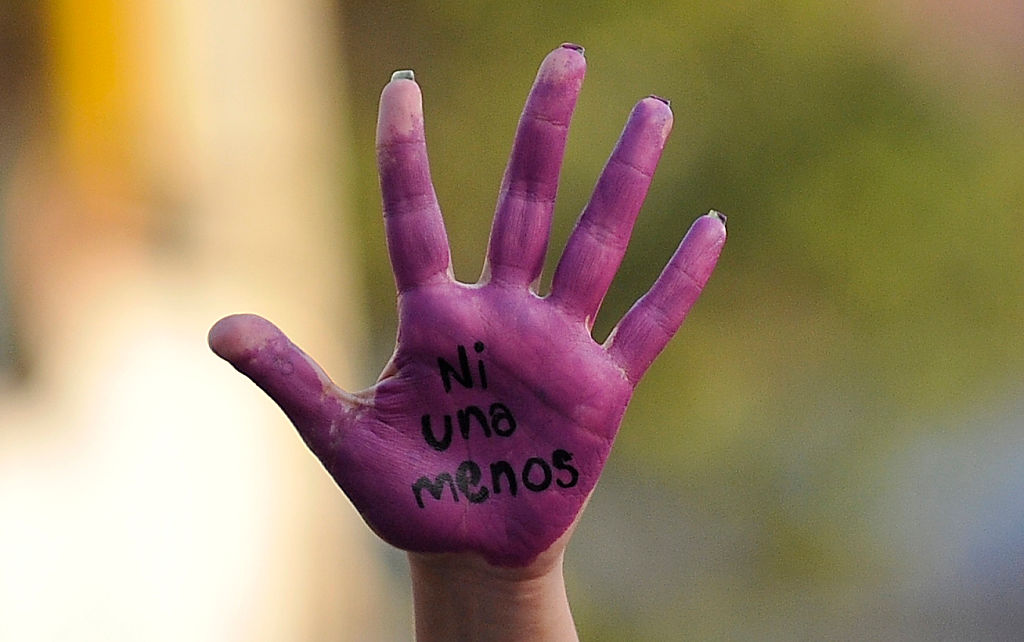"I hope that 'Song without fear' one day will no longer be sung" 5:09
(CNN Spanish) -
According to the American Psychological Association (APA), "almost half of all women in the United States have suffered at least one form of psychological aggression by a partner."
The institution clarifies that violence between couples "occurs at any age, ethnic group, gender, economic status, between people with disabilities, and between heterosexual and same-sex couples."
However, the main victims of this type of violence are usually women.
According to the World Health Organization (WHO) and UN Women, a third of the world's women are victims of physical or sexual violence, generally from a very young age.
Some 736 million women have suffered violence at the hands of a partner or other people and one in four young people between the ages of 15 and 24 who have had an intimate relationship will have suffered it by the time they reached 25.
Of 87,000 women murdered in 2017, 58% died at the hands of their partner or family members, says a 2018 UN study. In addition, more than a third of them were killed by their current or former partner.
advertising
How to detect if you are in a toxic relationship?
Abuse in relationships is defined as any behavior that a person exhibits in a relationship to obtain and maintain control of their partner verbally, physically, emotionally, psychologically and sexually.
Identifying a violent relationship can be very difficult.
And it may be even more difficult to admit it.
The most important thing is to know that abuse can manifest itself in various ways and is not just physical.
It can be psychological, emotional or economic, among other ways.
These are some signs that can alert you to a toxic or abusive relationship:
Your partner controls where and with whom you are all the time
Make decisions for you
Control your method of contraception
Discourage you from studying or working
Denigrates you
Forces you to have sex
Source:
United Nations, United States Department of Health and Human Services, and Mayo Clinic
What to do in a toxic or abusive relationship?
"Sometimes it's hard to tell if your relationship with your partner is going astray," says a US Department of Health post on its website.
"While it's not always possible to spot signs of dating violence, there are things you can do to recognize unhealthy relationships and seek help before they turn violent."
Rebecca Solnit seeks to be part of the great feminist wave 6:56
In that sense, the Department of Health recommends the following:
Trust your instincts.
If something doesn't seem right, take it seriously "
"Find out what are the signs that a person could become controlling or violent"
"Ask for help"
Other protection measures you can take:
Share what happens to you
Use your electronic devices with caution
Have a plan to escape in case it is necessary
Source:
United Nations, United States Department of Health and Human Services, and Mayo Clinic
Help resources
In United States
National Coalition Against Domestic Violence
VAWnet.
National Online Center for Violence Against Women
Call the National Domestic Violence Hotline at 1-800-799-7233
In Argentina
Line 144: provides care, containment and advice in situations of gender violence.
It is important that you know this is not an emergency line.
For risk cases, contact 911.
In uruguay
Calling from landline to 0800 4141 or from cell phone to * 4141
In Mexico
ORIGEN FOUNDATION
Linea Pro Aid to Women
Tel .: 01 800 01 51 617
http://www.origenac.org
CAVI Center for Attention to Intrafamily Violence
Legal and psychological support
Tels .: 5345 5248 and 5345 5249
In colombia
National Line 155
National Police 123
Office of the Attorney General of the Nation: 122, for filing complaints of domestic violence, gender-based violence and sexual violence.
Colombian Institute of Family Welfare ICBF, National Toll Free: 018000918080, and
Purple Line in Bogotá: 018000112137, free number from landline or cell phone.
Whatsapp 3007551846.




/cloudfront-eu-central-1.images.arcpublishing.com/prisa/ENOKQHD33NAGRAFBPP45GKFJGM.jpg)









